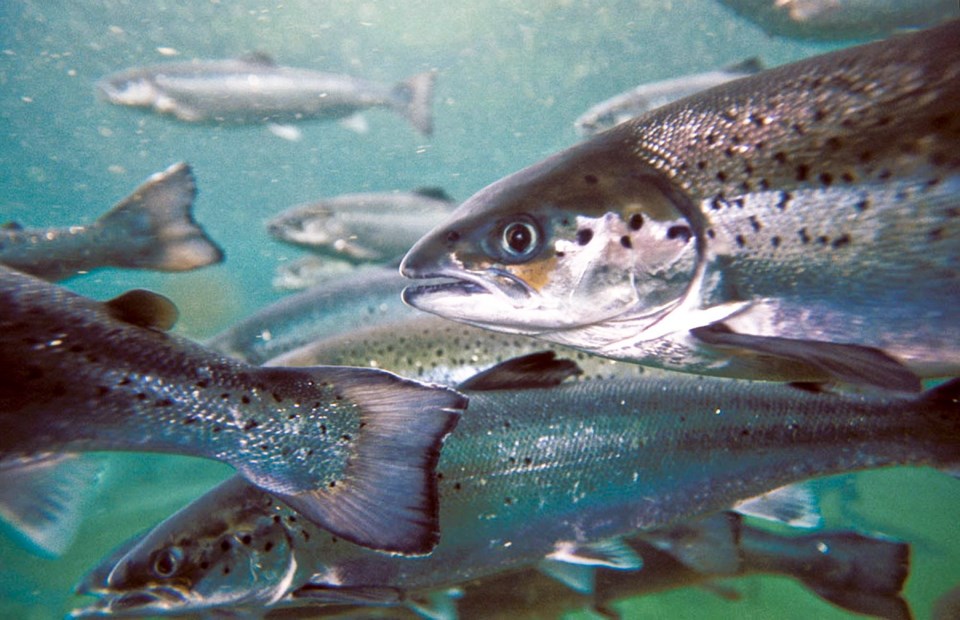Environmentalists are accusing a Vancouver Island salmon farm of putting diseased fish into ocean pens, in contravention of federal laws.
Ecojustice, acting on behalf of Vancouver Island biologist Alexandra Morton, launched a lawsuit in the Federal Court of Canada Wednesday challenging aquaculture licences given to companies believed to have put diseased fish in the water.
Margot Venton, Ecojustice staff lawyer, said the transfer of Atlantic salmon with piscine reovirus (PRV) from the hatchery to a Marine Harvest Canada ocean net pen appears to have violated federal law.
“The Department of Fisheries and Oceans is standing by while private companies put fish carrying disease agents into the ocean,” she said. “We think this is unlawful. It’s definitely a serious abdication of DFO’s mandate to protect the fish and the marine environment.”
Morton said she has information that, in March, Atlantic salmon with PRV were transferred into a Marine Harvest pen in Shelter Bay, near Campbell River, which is located on the Fraser River sockeye migration route.
The fish were tested by a third party and were found to have the virus, she said.
However, Clare Backman, Marine Harvest director of sustainable programs, said the company would never introduce disease-carrying fish into a pen. “The lawsuit is alleging that Marine Harvest knowingly put diseased fish into the ocean and that’s completely false,” he said.
Morton said there is a loophole in the licences: Although it is stipulated that no diseased fish should be put in the ocean, there is a clause that says “unless the facility deems it to be low risk.”
“I would like to see the rules changed so no more diseased fish could go into the ocean,” she said.
Venton is hoping that, once there is a hearing, the court will confirm what the law says. “We say the law is that you can’t put anything in the water that causes harm,” she said.
Complicating the lawsuit are opposing scientific claims about PRV, a respiratory virus that was first detected in Norway in 2010 and has been found in both wild and farmed fish in B.C.
Morton said there is evidence that PRV is associated with — and believed to cause — heart and skeletal muscle inflammation (HSMI), a severe disease that affects the muscles and hearts of salmon and can kill wild salmon.
“It is like being HIV positive and then developing AIDS,” she said.
What makes PRV more dangerous is that it is a durable virus that spreads easily, Morton said.
However, Backman said there is no evidence that PRV causes HSMI, adding testing is not carried out on farms, as DFO and the Canadian Food Inspection Agency do not have PRV on their lists of reportable diseases.



